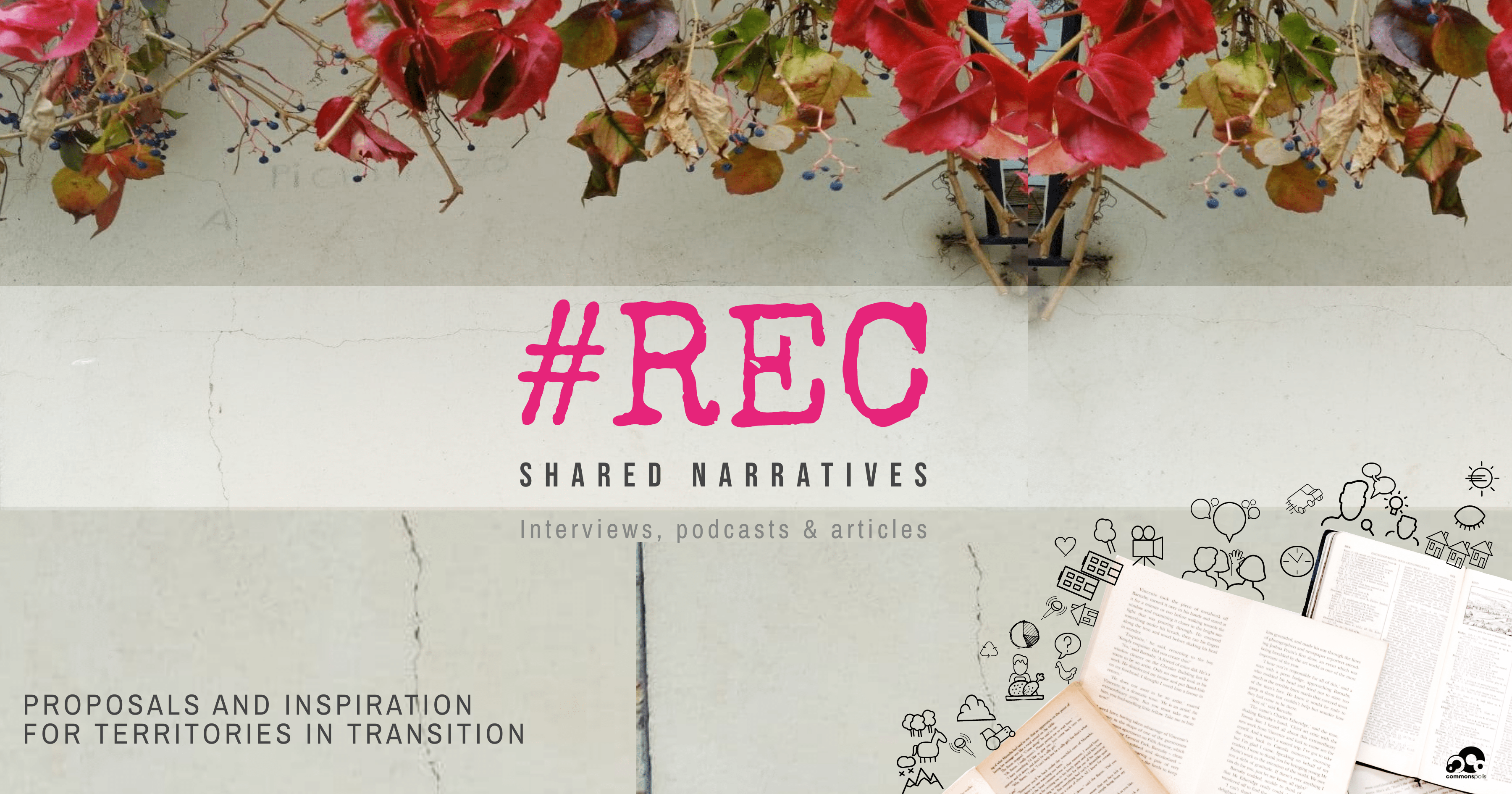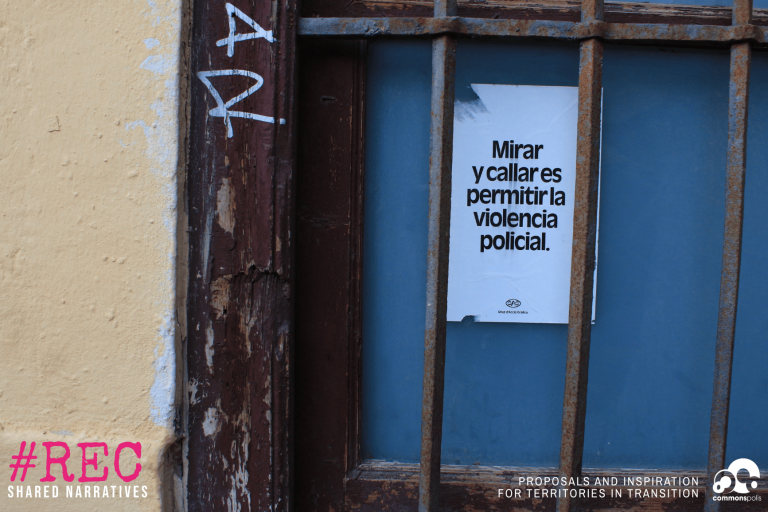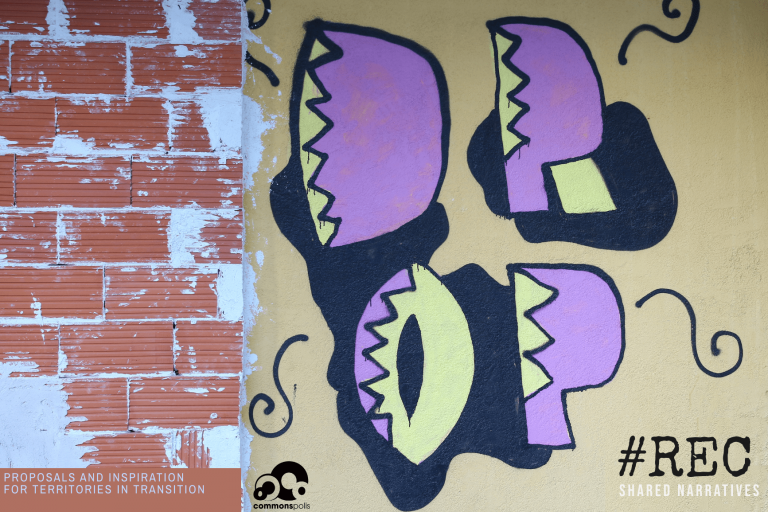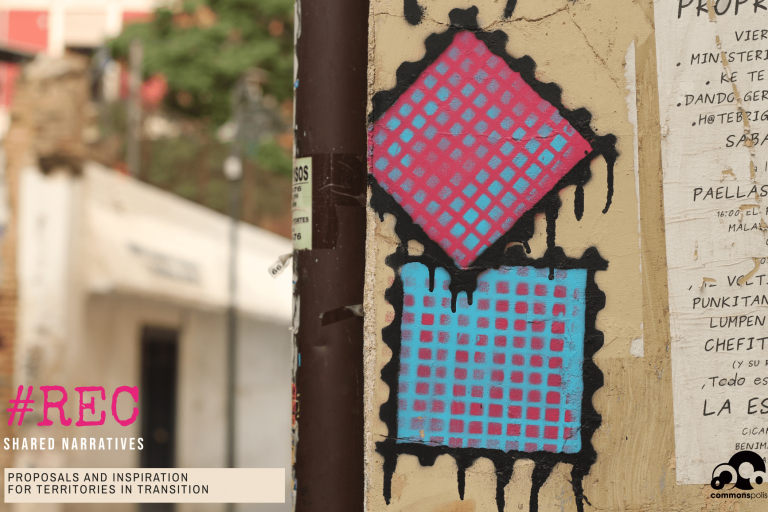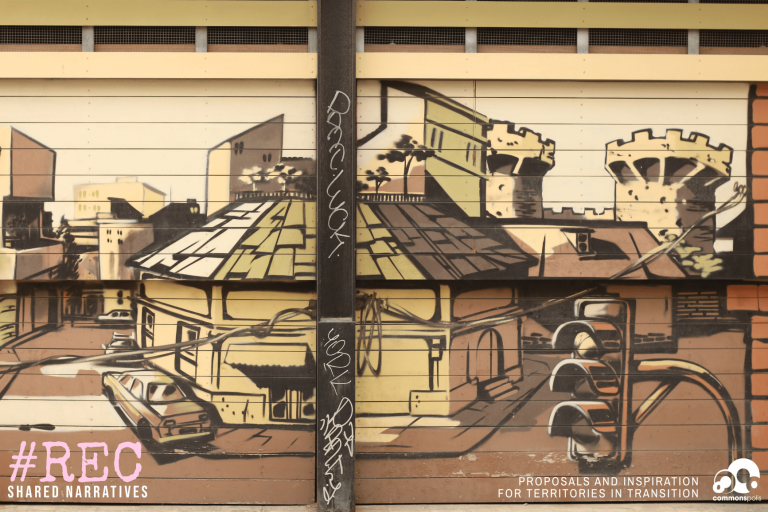
#REC – Shared Narratives brings together a series of articles, video and written interviews on several issues of societal transformation. The articles deal with climate change, communes, municipalism, care, rural development and citizen security, seeking to cross-reference approaches and giving a voice to different types of actors involved, whether as activists, citizens, elected officials, politicians or researchers.
More than a collection of points of view and analyses, and without claiming to be exhaustive, #REC tackles a new theme each month by proposing to the authors and interviewees to start from their own experiences in order to extract the individual and collective lessons they have learned from them.
#REC wishes to shed light on the subject by proposing contributions and multiple perspectives and by highlighting the complementary nature of academic and empirical knowledge.
The stories presented are drawn from experiences and authors from Europe, Latin America and North America.
Discover our 1st #REC about Covid-19, Security and Municipalism.
The manner in which the pandemic spread, and the response of governments to this cataclysm, have highlighted both the deficiencies of the systems in place, but also the possibilities that emerge from the various responses…
How have municipal cities responded to the pandemic? Are institutional responses more effective than spontaneous and supportive responses by grassroots organisations? How do municipalist initiatives ensure the safety of inhabitants? Federico Alagna is a…
Do we need more police, more expressions of the nation-state, to maintain security in neighbourhoods and cities? Does guaranteeing the safety of our citizens necessarily mean more control? What can we learn from experiences that…
Talking about security in Colombia means engaging in a dialogue about the different methods and approaches involved in its development. Security is not simply a matter of limiting criminal activity, and we must understand that…
How does Barcelona, a leading city in the municipalist movement, address the security of its inhabitants? What specific instruments and levers does it use? Is there a municipalist security policy that differs from other more…
In dealing with the new threats facing security int the cities, the authorities are reacting with measures to protect citizens, most of which also involve limiting their freedoms. This situation is untenable in the long…
The security policy implemented in New York after the 2001 attacks is often an example of efficiency, technological modernity and local autonomy. The city has a strong argument for it: New York has not suffered…
Hit hard by the post-industrial crisis of the 1970s, the city saw poverty, unemployment and rising urban insecurity grow steadily in the decades that followed. Now a model of diversity and economic dynamism, Pittsburgh has…
The case of Idjwi Island shows us how, when macro-politics fail, building micro-political solutions can be a source of inspiration for rethinking the classical security strategies of Northern countries. by Arnaud Blin | …
Confronted to the lack of adequate public services, a handful of young Nigeriens decided to launch a real-time citizen mapping of cities, with the idea of facilitating the delivery of humanitarian aid and helping to…


